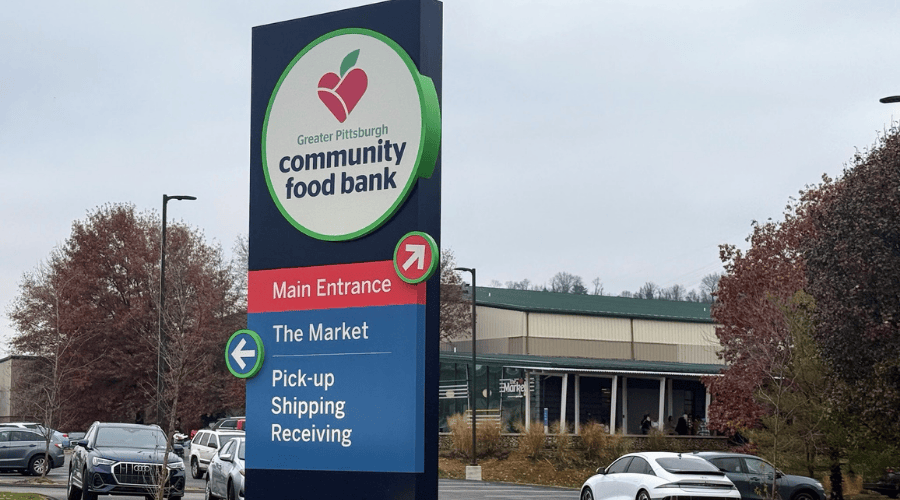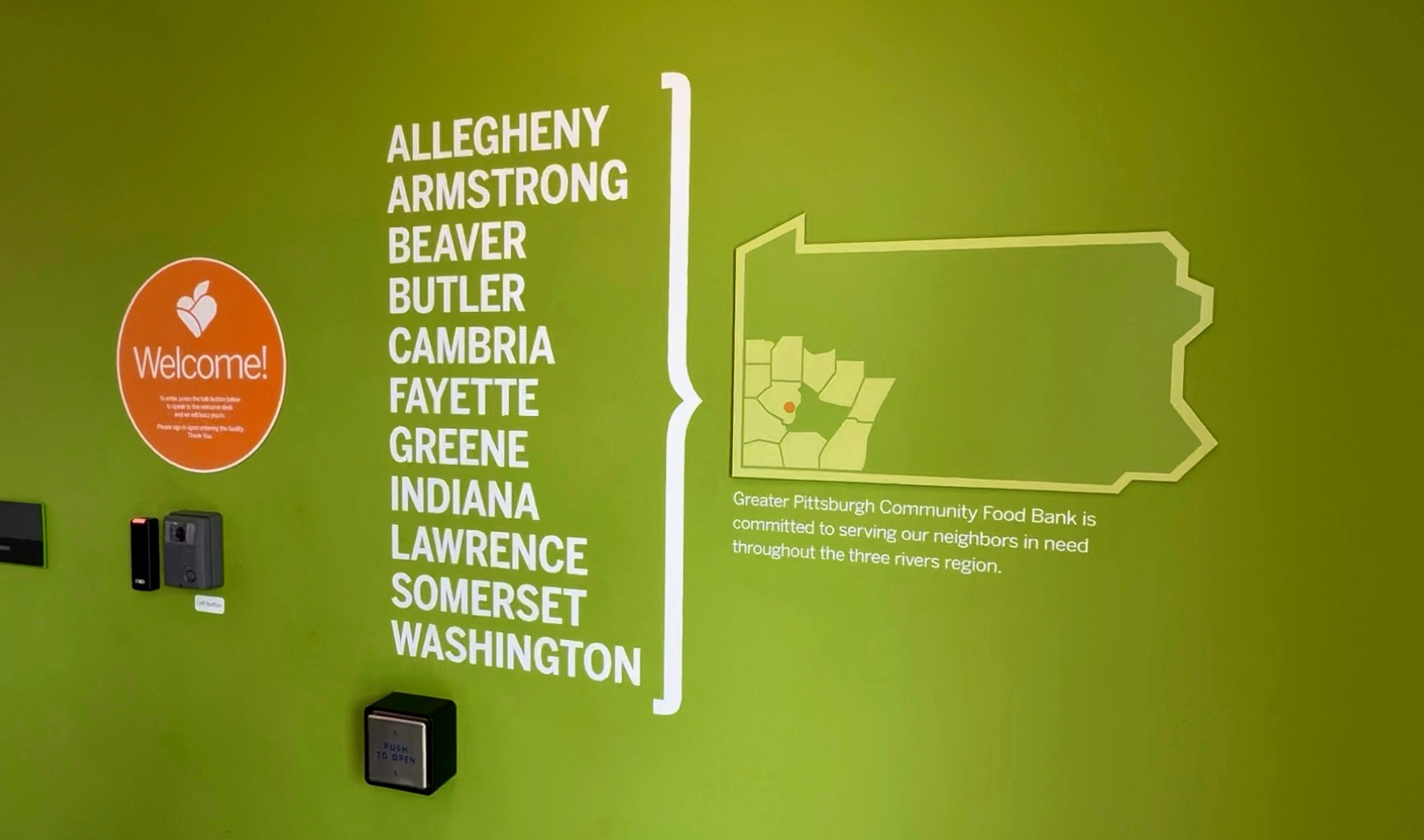
When SNAP payments restarted this month, many Pennsylvanians breathed a sigh of relief — only to learn their benefits could soon go away. New federal work rules rolling out are expected to cut nearly 150,000 people off food assistance statewide unless they get a job, a shift that food banks say is already driving record demand.
“People are panicking,” said Brian Gulish, vice president of marketing and communications for the Greater Pittsburgh Community Food Bank. “They don’t know where to go or what to do.”
More than 2 million Pennsylvanians receive SNAP — over half are families with children. Under federal law enacted in the beginning of September, SNAP recipients were required to report at least 20 hours of work, education, training, or volunteering per week if they are 18 to 54 years old, do not have a dependent child under 18, and are physically and mentally able to work.
Nearly 30,000 people in Southwestern Pennsylvania are projected to lose government food assistance with these changes and stricter requirements enacted at the beginning of November.
Communicating the new SNAP work requirements amid the state and federal budget impasses was a challenge, said Erin Dalton, Allegheny County Department of Human Services Director.
“With the shutdown and weaponizing of food benefits, it meant we couldn’t talk about the tidal wave that was actually already on top of us...we had to get through messages around the actual viability of [SNAP],” Dalton said.
The county partners with local organizations like Just Harvest, a nonprofit that aims to reduce hunger, to aid those applying for SNAP benefits or updating their profiles in about 60 sites throughout the county.

Within the last six weeks, the organization has responded to inquiries from more than 400 community members and submitted more than 200 applications for benefits, said Ann Sanders, director of public benefits, policy, and programs for Just Harvest.
“This is a problem so large that you can’t really expect a good grassroots effort to fill the gap,” Dalton said.
Dalton said the county has been working with the state Department of Human Services to provide them with the most recent datasets that they can use to also identify whether or not people are exempt from the new restrictions.
The requirements expanded to include adults who are 55 to 64, veterans, unhoused individuals, and current or former foster children aged 18 to 24. Those living in a SNAP household with children under 14 are not subject to the new work requirements.
Throughout the region, the percentage of people enrolled in SNAP varies from a high in Fayette County of 31% to as low as 13% in Butler County. Almost 14,000 people are projected to lose SNAP benefits in Allegheny County, the second highest number in the state.
People who do not meet these requirements can now only receive three months of SNAP benefits within a three-year period. But the U.S. Department of Agriculture (USDA) issued a memo on Nov. 13 telling states not to count November as part of the three-month time limit, extending the earliest potential benefit cutoff to January 1 instead of December 1.
The Congressional Budget Office estimated in an August report that more than 3 million Americans could lose assistance.
Regional organizations are gearing up for an increased need for food assistance just as the dust was starting to settle from the effects of the state and federal budget impasses.

The Greater Pittsburgh Community Food Bank provides food in 11 counties through over 1,000 partner organizations. The organization distributed the most amount of food in a single week this month: one million pounds.
“We were seeing more than double the visits to our on-site pantry [during the government shutdown]; in a normal week, we see about 130 to 150 families, but we were seeing anywhere from 300 to 400,” Gulish said.
The Food Bank saw a 60% increase in calls related to food assistance in October and is preparing for more pantry visits during the holiday season, he said.
The organization serves an average of 10 million meals in November and December.
“We want every individual, family to be able to have holiday meals with their loved ones, so this is definitely a time for us to continue to scale up our operations,” Gulish said. “It was a little more than $750,000 that came to us from the state in emergency funds. That was critical and continues to be.”
The financial impact of the state and federal budget impasses will take time to recover from, he said.
“[SNAP recipients] were dipping into savings, putting food on credit cards; our 25,000 federal employees in the region went two to three cycles without pay,” Gulish said. “It’s a tougher thing to do when you’re expecting potentially higher grocery bills because of the holiday season, but we’re here to service the community.”
The Food Bank lost an estimated $1.6 million in grant funding on July 1, after several USDA cuts. Advocacy Coordinator Stephen O’Brion said while the state budget did see funding increases for the Department of Agriculture, the new SNAP work requirements provide an extra challenge.
“The cost of living was already high enough. Rising utility and food costs...we’ve had to make some tweaks in terms of distribution models to make more food available at low cost or no cost to our partners so they can meet the demand of their neighbors,” O’Brion said. “Since the pandemic, we’ve set organization records for number of meals distributed, pounds of food distributed; it’s never plateaued.”
From July 2024 to this June, the Food Bank distributed 53 million meals, a 5 million increase from the year prior, Gulish said.
Despite the USDA delaying SNAP payments for this month, they communicated to recipients that the work requirements still went into effect on November 1, the state Department of Human Services said in a statement.
Erin Yudt is a reporter with Pittsburgh Media Partnership Newsroom, part of the Center for Media Innovation at Point Park University. She most recently was a multimedia content producer and digital reporter at WKBN in Youngstown and is a graduate of Point Park University. Reach her at erin.yudt@pointpark.edu.
The PMP Newsroom is a regional news service that focuses on government and enterprise reporting in southwestern Pennsylvania. Find out more information on foundation and corporate funders here.
Header: Outside the Greater Pittsburgh Community Food Bank in Duquesne. Leaders say the organization distributed the most amount of food in a single week this month: 1 million pounds. Photo by Erin Yudt